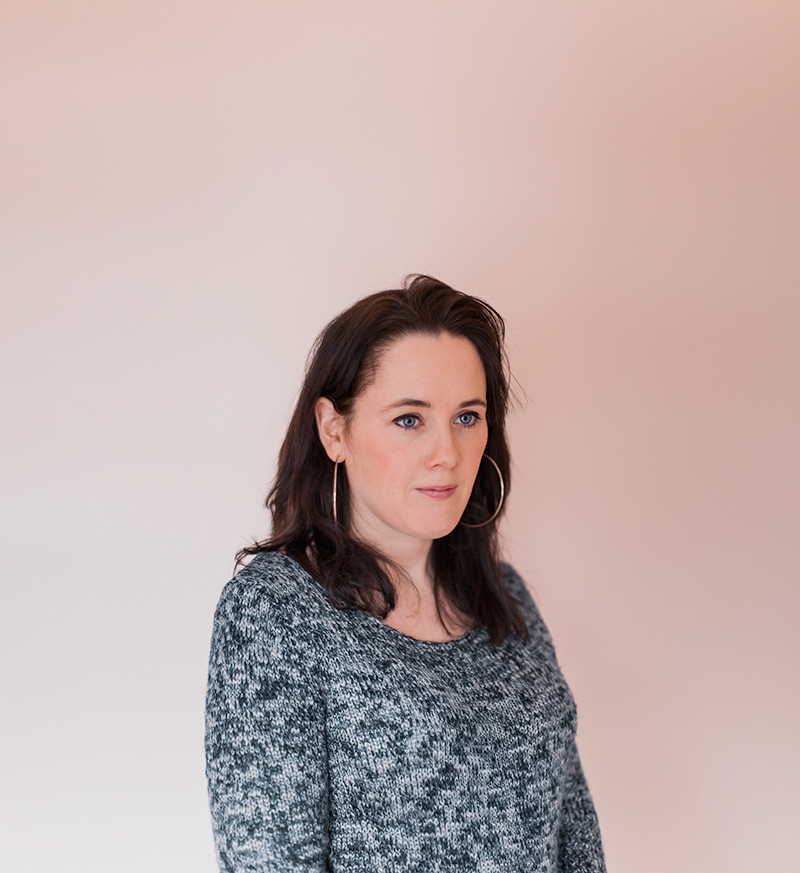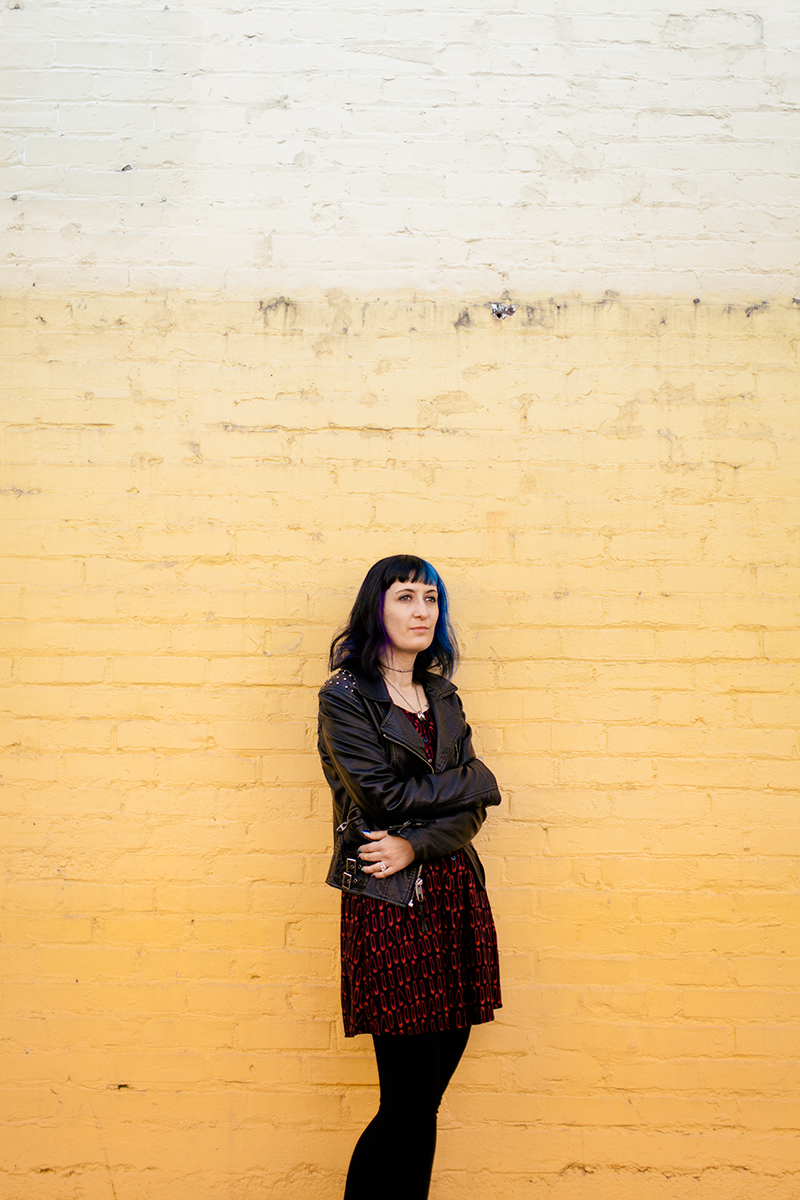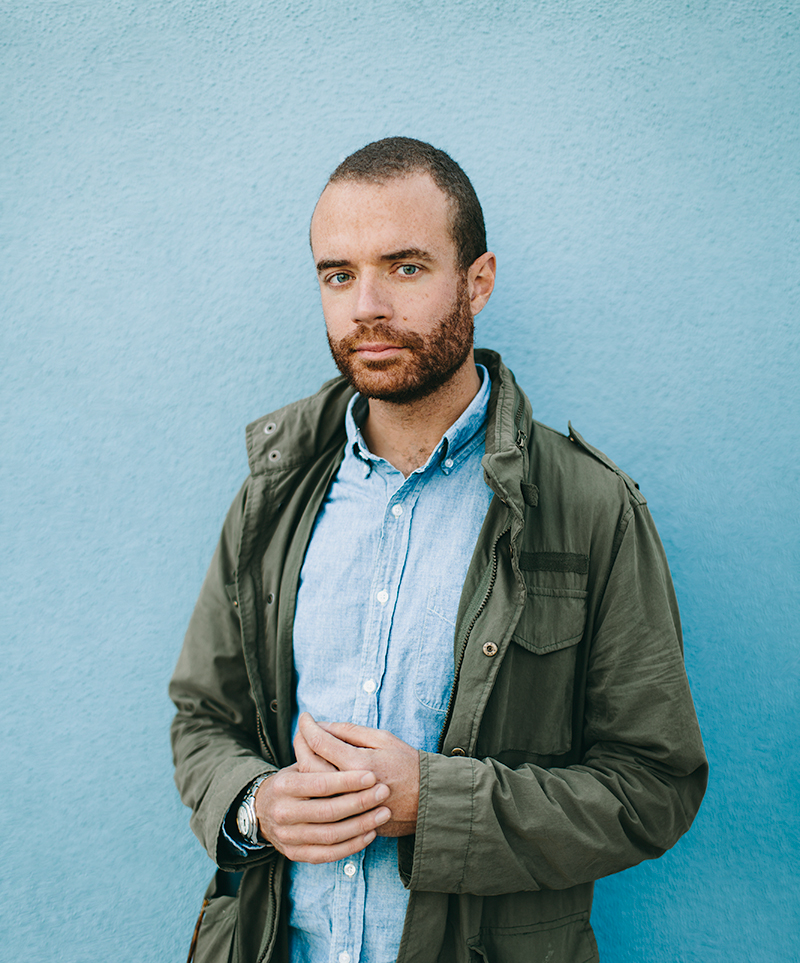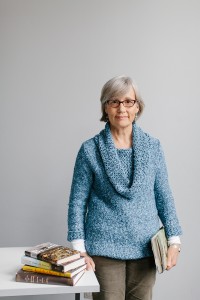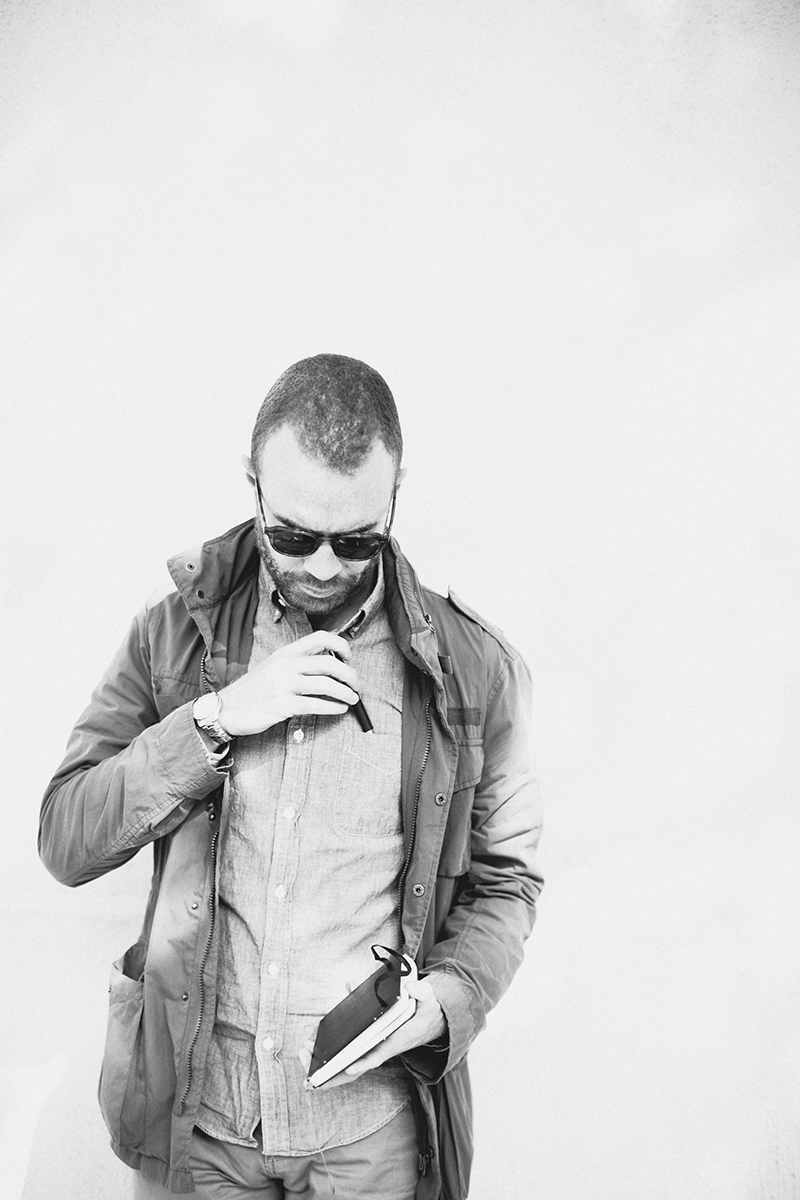
Forever Young
Fiction writers find major success with the minor demographic
By Kristi Turnbaugh
Photography by Jacob Boll (BA ’12)
Think back on the first book you ever really loved—maybe something written by Judy Blume, Mark Twain or J.D. Salinger, an author who summed up adolescence so precisely that it resonates with you through the years. The last two decades have seen a boom in young adult (YA) literature (thanks largely to a certain boy wizard), and readers of all ages snatch up stories about first love, first loss—all the electrifying firsts that accompany growing up. In today’s publishing world, YA sits in the spotlight. But what goes on behind the scenes?
We talked with three determined alumni YA authors about the long, solitary hours of writing on top of full-time day jobs, dealing with writer’s block, and surfing the highs and lows of criticism. Even with finished manuscripts, these writers must navigate the world of agents, editors and publishers—with no promise their books will ever see the light of day. So why do they do it? Jessie Ann Foley (MFA ’12), Stephanie Kuehnert (BA ’03, MFA ’06) and Chris Terry (MFA ’12) share how they press on.
JESSIE ANN FOLEY (MFA ’12)
Location: Chicago
Day job: High School English Teacher
Novel and synopsis: The Carnival at Bray (2014). Uprooted from big-city Chicago to a windswept town on the Irish Sea, 16-year-old Maggie Lynch tries to find her place in her new world. When first love and sudden death simultaneously strike, she embarks on a forbidden pilgrimage to Rome to fulfill a rock ‘n’ roll promise.
Awards and recognition: Helen Sheehan YA Book Prize 2014; Michael L. Printz Honor Book 2015; Young Adult Library Services Association (YALSA) 2015 Top Ten Best Fiction for Young Adults; William C. Morris Award Finalist 2015; Kirkus Reviews Best Teen Books of 2014; Chicago Reader Best Books of 2014
Next project: Novel about three girlfriends at a closing Catholic school and their complicated relationships with family and each other.
Jessie Ann (Morrison) Foley grew up in Chicago near Jefferson Park, devouring the books of Roald Dahl and Laura Ingalls Wilder and writing stories about her dog, Woody. As an undergraduate at the University of Illinois at Urbana-Champaign, she explored advertising and journalism before settling on English, earning her bachelor’s degree in 2002. After becoming a high school English teacher at Loyola Academy in Wilmette, Ill., Foley still dreamed of making it as a writer. In 2008, she enrolled in Columbia College Chicago’s master’s program in fiction writing.
How did your first novel come about?
It was the semester before I graduated, and [then-Fiction Writing department chair] Randy Albers set me up to meet this agent for Story Week. This agent read some of my work, and he was like, “I really like this, [but] I would never be able to sell this because it’s a short story collection”—which is so funny because MFA programs are often very focused, for whatever reason, on short stories rather than [longer works]. He was like, “Write a novel and get back to me.” So, Don De Grazia, who I had had for a few classes, said, “That short story you published in the [Chicago] Reader? That felt like a chapter one to me.” And that’s what ended up being [my first novel], The Carnival at Bray.
You changed jobs right after graduation in 2012, going to teach at a new high school. How did you find the motivation to tackle your first novel while figuring out such a demanding new job?
I was really unhappy that first year in my job. I just graduated from this MFA. I have all this debt, and I’m miserable at my job. I have to finish a book. I have to do something to prove that this money and this time was not all for nothing. And then when I finished it [in 2013], I did send it to that agent—I didn’t hear back, of course. Then I heard about this contest through Elephant Rock Books. They were starting a young adult imprint. I was like, “I don’t even know if this is young adult, but I’m just going to send it to this contest, and we’ll see.”
The Carnival at Bray did win, and you were awarded the Helen Sheehan YA Book Prize, which included having the book published. What did you think about the reviews?
I was so scared about the reviews. I worked on this for a year of my life and then someone can tear it down in a sentence. But the reviews have been really positive, so I’ve been lucky. I had a younger reader saying something like, “Even though the writer is an adult, she hasn’t forgotten what it’s like to be a teenager,” which was probably the best compliment I could get.
What are some of the challenges of being a writer?
I used to worry, “Oh my God, what if my mom reads this?” What I learned at Columbia is just write whatever it is you need to write and you shouldn’t worry about any of that stuff. It was almost like, don’t flatter yourself, nobody’s publishing the book yet, just write it. If you’re lucky then maybe you can worry about those problems. I feel that was a very Columbia philosophy.
When you’re writing, you should only be thinking about the story and the best way to tell it. It’s not really your job to figure out who it’s going to be marketed to. Everything I write, I still write under the belief that nobody’s going to read it, so I can write whatever I want.
What is it about writing that makes you stick with it and press on?
I just love doing it. It’s something I would do whether or not it was going to get published. I’ve become a parent—that’s such a huge change in your identity and who you are—so it’s nice to be able to still write and feel like this is still a part of you and it always will be. If you were an athlete, you’d eventually get to a point where you couldn’t really do it anymore, but with writing, it’s always something you can do. It doesn’t require any special equipment or money or anything like that.
With your full-time job, a toddler and another child on the way, how do you make the time to write these days?
This is probably so generic, but you just have to write every single day. Before I started at Columbia I would have these bursts of creativity, and I would write, write, write, write, write. And then I wouldn’t write another word for four months. I don’t think that’s an effective way to be successful. It’s like exercise: If you don’t do it then you get rusty.
My life has changed a lot, and I have a little girl at home. When she takes a nap, I write, and sometimes it’s for 20 minutes or half an hour, and sometimes it’s distracted—but it’s something.
You have to read a lot, too. I never get [when] students say, “I love to write, but I don’t really like to read.” To me those things are inextricable; you have to be passionate about both because that’s where you’re going to learn.
STEPHANIE KUEHNERT
Location: Seattle
Day job: Administrative Assistant, English Department, Seattle University
Novels and synopses: I Wanna Be Your Joey
Ramone (2008). Emily’s mother left her to follow rock music and never came back. Now all grown up with her own band, Emily is determined to find the tune that will bring her mother home; Ballads of Suburbia (2009). Nearly four years after a heroin overdose nearly killed her, Kara returns to her hometown to face the music. After her friends filled a notebook sharing their defining moments, Kara prepares to write her own.
Awards and recognition for I Wanna Be Your Joey Ramone: Venus Zine Best Book of 2008; nominee No. 2 on the Venus 2008 Hottt List in the Book category (Voted by Venus Zine readers); LA Times YA Books That Rock pick
Next project: Zine-style memoir chronicling Kuehnert’s teenaged evolution “from geek to grunge to goth to grrrl.” Sold to Dutton and due out in 2016.
Born in St. Louis and raised in Oak Park, Ill., Stephanie Kuehnert began writing about “unrequited love and razor blades” in eighth grade and producing feminist zines with a punk-rock slant in high school. After attending liberal Antioch College in Yellow Springs, Ohio, for one year, Kuehnert dropped out and moved to Madison, Wis., to pursue her dream of becoming a writer. Instead, she says, she “went out clubbing for two years.” After enrolling at Columbia College Chicago, she received her bachelor’s degree in fiction writing in 2003 and her MFA in fiction writing in 2006.
How did your first novel, I Wanna Be Your Joey Ramone, come about?
I was going to write it for my thesis project for my MFA. But what fueled that even further was during the Story Week Festival of Writers, I met with an agent who read the first chapter. This agent asked, “When is this going to be done? I would love to represent this kind of book.” That was March. I was having some writer’s block, but I was like, “Labor Day! Sure, I can be done!” [Then-Fiction Writing department chair] Randy [Albers] was actually on sabbatical at the time [but] he was still mailing me notes. It was pretty incredible. So before I got my master’s degree, the first draft of that book got me an agent.
Why did MTV Books publish the novel?
It was on submission for a year, and it went to all of the adult publishers in New York, and they turned it down for one reason or another. Then my agent said she wanted to submit it as young adult. Even though I loved young adult, I was like, “This can’t be, because the main character loses her virginity in the first chapter. Isn’t that too dark?” But my agent was like, “No, trust me, it will fit the genre.” And when she submitted it, sure enough, it sold right away.
How were the sales?
My books came out in 2008 and 2009, which was the heart of the recession. The first one didn’t sell terribly; it just didn’t sell quite to the publisher’s expectations. And by the second one [Ballads of Suburbia]—I did the best I could promoting it. It just didn’t reach as wide of an audience, and I didn’t have the money myself to hire a publicist that would take it nationally. At that point, my editor said, “I can’t buy any more YA from you.” That was really hard.
In 2011, you started writing essays for Rookie, an online magazine for teen girls created by the now-famous Tavi Gevinson, where you opened up about some of your struggles as a teen and as a writer. Then you decided to reboot yourself by moving to Seattle in 2013.
Being a part of Rookie, which I have been since it launched, is 16-year-old me’s dream come true. From those essays, I had this idea for an essay collection/memoir and ran it by my agent. That proposal sold in like a week and a half. At that point, it had been five years of nothing—really struggling to get another book published.
And then, yeah, whirlwind! The memoir is with Dutton [under Penguin Books], with Julie Strauss-Gabel—kind of the dream editor who’s published Stephanie Perkins [Isla and the Happily Ever After], John Green [The Fault in Our Stars]—all these amazing YA writers that I admire in a huge way. Kind of a fairytale ending.
Do you think there’s a stigma around young adult fiction as a genre?
I think it’s definitely been treated as if it is a lesser form of literature, like it’s not as literary as adult literary fiction, which is untrue. I think people act as if it is lesser in some ways because it’s written for teenagers, which upsets me deeply because I think teenagers can be even more critical readers than adults in some cases: They’re in high school, reading is basically their job, and that’s the time when you really fall in love with books, with movies, with bands. And they’re deeply, deeply passionate.
How autobiographical are your books?
With Ballads of Suburbia, [main character] Kara and I are definitely a lot closer [than my other characters]. She struggles with depression [and] self-injury, which is stuff I struggled with as a teenager, and she’s had some screwy relationships with guys, which also has been my situation. I definitely included those elements very purposefully because when I was a teenager and going through that, I was looking for books with that stuff in it and unable to really find it.
What is the most rewarding thing about being an author?
Finding and talking to readers who really connected with your book—nothing means more to me than that. At an event, a teenager came with a copy of Ballads of Suburbia that was just covered in doodles and notes, and she says to me, “Your book is my life.” I could tell it was something that she carried around with her. That was definitely one of the most meaningful experiences of my life.
CHRIS L. TERRY
Location: Los Angeles
Day job: Marketing Copywriter
Novel and synopsis: Zero Fade (2013). Growing up in Richmond, Va., 13-year-old Kevin Phifer has a lot to worry about. His Uncle Paul is coming out, Tyrell the bully taunts him, girls prefer other boys, his sister ignores him, his mother is dating, and … he’s grounded.
Awards and recognition: Young Adult Library
Services Association (YALSA) Best Fiction for Young Adults nominee 2014; Library Services for Youth in Custody In the Margins selection 2014; Slate.com Best Books of 2013; Kirkus Reviews Best Fiction Books of 2013
Next project: Adult novel about a mixed-race, punk rock bassist and his imaginary black friend who are accused of committing a violent crime.
Chris L. Terry grew up in Boston and Richmond, Va., the son of a black father and Irish-American mother. He spent his late teens and early 20s writing for zines and touring North America and Europe as a singer for punk bands. After graduating with a bachelor’s degree in English from Virginia Commonwealth University in 2003, he spent five years in New York City working as a copyeditor and writer while also working—at various times—as a babysitter, bartender and bassist. He enrolled in Columbia’s master’s program in fiction writing in 2008.
What did you think about Columbia’s writing program?
The major thing was that they use a generative approach in the department, the idea of just always writing and having as much output as possible. I call it “keeping the engine warm”—you know, it’s easiest to keep working on something if you’re already working on it. Something I really learned at Columbia is the value of producing a lot of work, just writing as much as humanly possible.
How did your first novel, Zero Fade, come about?
I had this idea for this kid who’s at the mall with his sister, and he considers the mall this mecca of opportunity where he can go, where he can be himself, where he can form his identity. You need a conflict in a story. I was thinking, what would mess with this kid’s idea of masculinity? What if this guy [his uncle Paul], who he thinks of as this apotheosis of masculinity, is gay and if that messed with the kid’s head? He can hardly even wrap his head around the idea of talking to girls, so he’s not mature enough to handle the idea of homosexuality. I wanted to lampoon homophobia by showing it as this juvenile thing that can be outgrown, because I think it’s an ignorance.
I worked on it on and off the whole time I was at school. I got a really good start on it in Laurie Lawlor’s young adult fiction class. I banged out the first 75 pages in her class my second semester at school. I was working in a coffee house that following summer and wrote the first draft of it then. Zero Fade was my thesis novel; I turned it in, and I feel like it was 80 percent complete, meaning I had a beginning, middle and end, but there were a lot of things that I wanted to hone internally when I graduated.
Curbside Splendor Publishing picked up your manuscript in late 2012, and you had a finished product in your hands the following spring. What was the draft-to-publication process like?
I wanted to be sure that we sold it as a YA book. [Curbside was] talking to their distributor, figuring out some of the things they should do—even that I should be smiling in the author photo, so that parents are OK with leaving their kids with me and my book. Tips like that were really helpful.
We figured out how much cussing we could put in there, because a big part of the book is this kid getting over his own prejudices, and there’s some hate speech in there. In seventh grade, people swear all the time, so how do you get this accurate adolescent boy without scaring or offending the gatekeepers—the librarians or the teachers who might want to teach your work but are scared if you have the “F” word on every other page? Part of the revision process was [to] keep it authentic but also cut out a lot of the swearing. It was a crazy four or five months. I was working 60 hours a week: I had a job at Columbia in Multicultural Affairs, and I was teaching two different writing and theatre programs. I was working six days a week, and I was only off on Tuesdays. I’d go over a chapter in that day, and then I’d take a run and cook a bunch of food to get me through the week. That was a process.
How did you feel about the reviews?
The first review was from Kirkus, a publishing industry magazine, and also widely read by librarians. It was a glowing review, and they put it on their best of 2013 list. That was a really ideal situation. You hear some people talk about how they don’t read their reviews—I call bullshit on that. I’ve spent four years with this book, so I have a strong sense of what’s in it and of the themes and the tenor of it. So it’s really, really cool when somebody reads it and gets it or even sees something new in your book. Librarians and educators read things like Kirkus and the Library Journal to see what’s out there and to see what they should read. Those are real tastemakers.
Do you think it’s hard to be a writer?
Definitely. I have a lot of tattoos; people ask if they hurt, and they expect the answer to be no. I’m like, yeah, it hurt. Someone was just digging a needle into me for three hours. It’s the same with a book except you’re digging a needle into yourself for a couple of years. It’s a mentally strenuous thing because you have to pay attention to really, really small details. You have to work on that micro scale to make sure every single sentence is exciting to read and that it serves a purpose. Also, looking at the big picture, and making sure it comes together as a story, there aren’t any loose ends, you didn’t use the same descriptive word on page three and 300.
Do you ever get discouraged?
I do get discouraged. There’s a point in the middle of working on a book, and I’m experiencing it now with my second book, where I feel like I’m out in the weeds. It’s a solitary thing, and you lose perspective on it: Is this any good? Is it ever going to be done? I want some sort of gratification, I want some results, and the book can feel like it’s a long way off when you’re on the third draft, and you’ve revised 60 pages of it so far, and you know there’s a couple hundred more to go.
Why do you write YA?
It’s addictive to write about that age because everything is new to a character who’s an adolescent. There’s also a heightened emotional sense—things feel a lot more urgent or life-and-death. I think that lends itself to compelling art.
Lesson Plans
Prolific YA author and writing professor Laurie Lawlor encourages students to experiment to find their voice.
Laurie Lawlor is Columbia College Chicago’s resident expert on young readers. The Creative Writing professor is a prolific author herself, with 37 children’s and young adult titles to her name since she began publishing nearly three decades ago. “I sold my first book in 1986—I wrote it on an electric typewriter,” Lawlor says. “Since then, things have changed phenomenally.” In addition to technology shifts, Lawlor witnessed a popularity boom in the genre, with writers like J.K. Rowling and John Green even sneaking onto adult bookshelves.
Lawlor writes both fiction and nonfiction, often with a historical bent. Her historical picture book Rachel Carson and Her Book That Changed the World won the 2012 John Burroughs Riverby Award for Excellence in Nature Writing. Other titles include historical fiction Dead Reckoning and The Two Loves of Will Shakespeare.
Lawlor teaches classes in Young Adult Fiction and Writing for Children. (Chris Terry and Stephanie Kuehnert both passed through her classroom.) Young readers, she says, are particularly discerning—they either fall in love with a book or dismiss it outright. Her students find the wide-open aspects of the genre exciting, with a broad marketplace open to experimentation in form and voice—whether they are attempting realistic contemporary, fantasy, science fiction, or historical fiction or steampunk.
“It’s not the book they think I want to read, or the book the department would like, or the book they think would sell,” she says. “It’s really their book. That throws it into a whole new level for a lot of students. To finish something, you have to really love it.”
—Megan Kirby
